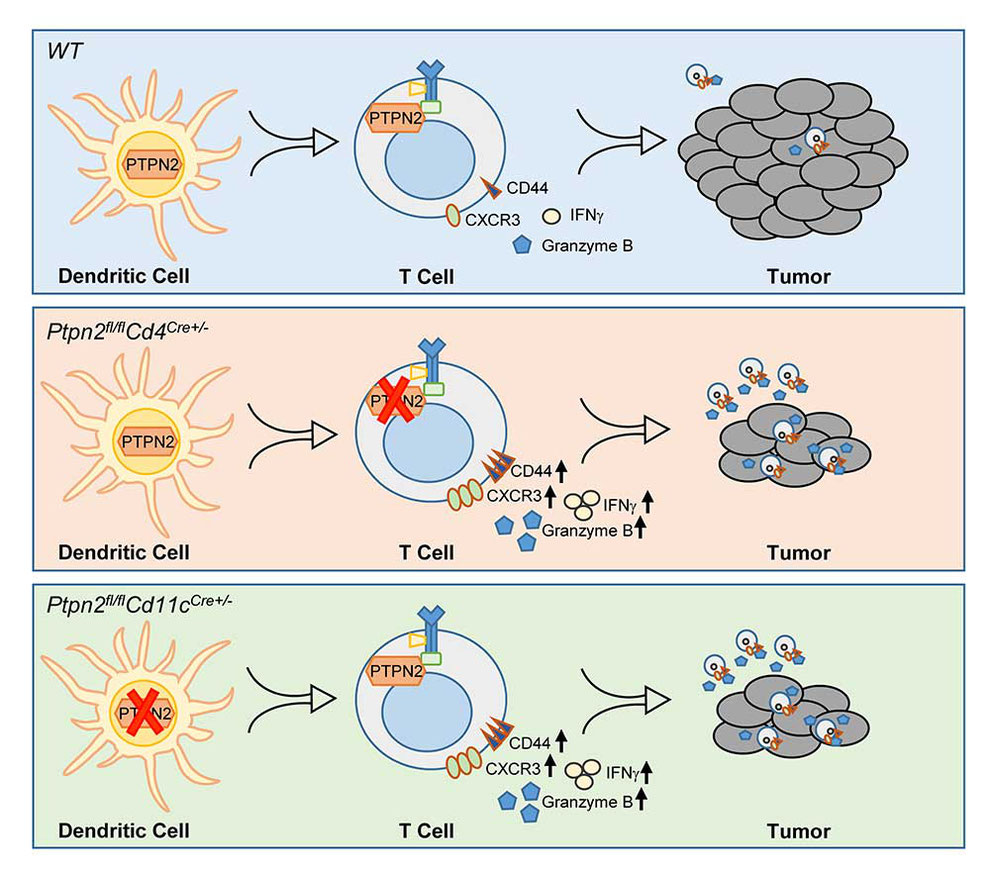Unravelling the role for PTPN2 in the pathogenesis of colorectal carcinoma
Protein tyrosine phosphatase non-receptor type 2 (PTPN2) recently emerged as a promising cancer immunotherapy target. We set to investigate the functional role of PTPN2 in the pathogenesis of human colorectal carcinoma (CRC) as its role in immune-silent solid tumors is poorly understood. We demonstrate that in human CRC, increased PTPN2 expression and activity correlated with disease progression and decreased immune responses in tumor tissues. Particularly, stage II and III tumors displayed enhanced PTPN2 protein expression in tumor-infiltrating T-cells and increased PTPN2 levels negatively correlated with PD-1, CTLA4, STAT1 and granzyme A. In vivo, T-cell and dendritic cell-specific PTPN2 deletion reduced tumor burden in several CRC models by promoting CD44+ effector/memory T-cells, as well as CD8+ T-cell infiltration and cytotoxicity into the tumor. In direct relevance to CRC treatment, T-cell-specific PTPN2 deletion potentiated anti-PD-1 efficacy and induced anti-tumor memory formation upon tumor re-challenge in vivo. Our data suggest a role for PTPN2 in suppressing anti-tumor immunity and promoting tumor development in CRC patients. Our in vivo results uncover PTPN2 as a key player in controlling immunogenicity of CRC, with the strong potential to be exploited to promote cancer immunotherapy.




